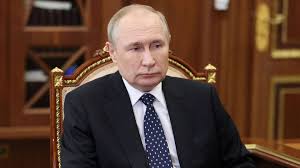Vladimir Putin: The Power and Influence of Russia’s Leader

Introduction
Vladimir Putin, the President of Russia, has been a pivotal figure in global politics since his rise to power in 1999. His leadership style and policies have significant implications not only for Russia but also for international relations, making him a figure of considerable interest and scrutiny worldwide.
The Current Political Landscape
As of 2023, Vladimir Putin’s administration faces a myriad of challenges that have affected both domestic and foreign policy. The ongoing conflict in Ukraine continues to dominate headlines, with Putin recently reaffirming support for separatist regions and justifying the military presence as essential for Russia’s national security. This has drawn widespread condemnation from Western nations and led to multiple sanctions against Russia, further isolating the country on the global stage.
Additonally, the economic ramifications of such conflicts are evident, with the Russian economy grappling with inflation and international sanctions resulting from its aggressive policies. Despite these challenges, Putin’s approval ratings remain surprisingly resilient, attributed in part to state-controlled media portraying him as a strong leader protecting Russian interests.
Putin’s Influence on Global Affairs
Beyond Ukraine, Putin’s influence extends into various geopolitical areas. His efforts to strengthen ties with countries like China and Iran signify a strategic pivot away from reliance on the West. Recent meetings with Chinese President Xi Jinping highlight a growing partnership that reinforces both nations’ positions against western hegemony. Observers suggest this alliance could challenge the existing global order, which has historically been dominated by the United States and its allies.
Moreover, the energy sector remains a key area where Putin holds leverage. As Europe searches for alternatives to Russian gas amid the ongoing conflict, Putin’s control over energy supplies plays a crucial role in international negotiations and alliances.
Conclusion
Vladimir Putin’s role as a leader is marked by controversy, strength, and a continuous adaptation to global dynamics. As he continues to pursue his vision of restoring Russia’s influence on the world stage, understanding his strategies and their implications is essential for observers of international relations. Looking ahead, it remains to be seen how his actions will shape the future of not only Russia but also the geopolitical landscape in which it operates. The evolving scenario will undoubtedly hold importance for global stability, political alliances, and economic conditions well into the foreseeable future.
